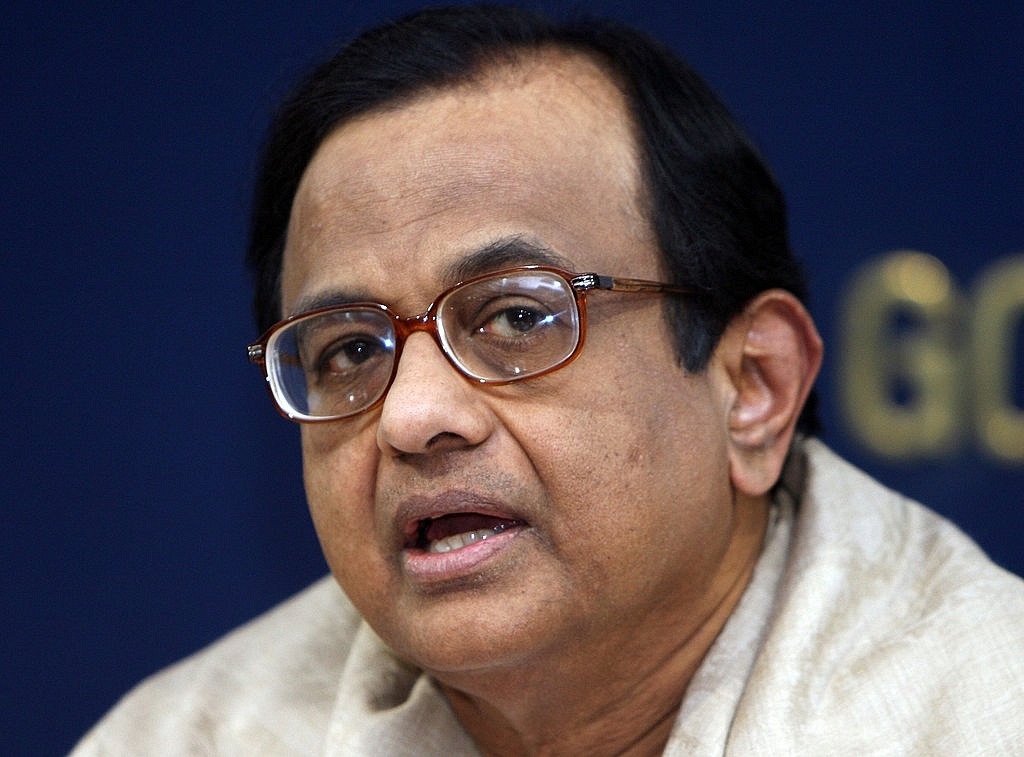Politics
Explained: Why Chidambarams Are In Trouble And How They Will Get Out Of It
- Why is the AIADMK demanding action against Chidamabaram’s son, Karti? Given below, is a summary of the allegations against Chidambaram and his son. Allegations which, prima-facie, do not herald good news for the Chidambarams.

P Chidambaram (RAVEENDRAN/AFP/Getty Images)
The presentation of the Budget wasn’t the only event of importance that happened in the Parliament on Monday. After Finance Minister Arun Jaitley had read out his budget speech, members of the AIADMK from Tamil Nadu disrupted proceedings in both the houses. The ADMK members were calling for action against Karti Chidambaram, son of P Chidambaram, senior Congress leader and Home and Finance Minister in the UPA regime. Karti Chidambaram is an alleged accused and beneficiary of what is known as the Aircel-Maxis case.
What is the Aircel-Maxis case?
In 2006, Maxis, a Malaysian company, took over Aircel by acquiring 74 percent of the latter’s shares. In 2011, C Sivasankaran of Aircel revealed to the CBI that he had been arm-twisted to make the deal with Maxis by former telecom minister, Dayanidhi Maran.
The CBI registered an FIR against the Maran brothers accusing them of quid pro quo for facilitating the deal on behalf of Maxis.
Karti Chidambaram came into the picture when Subramanian Swamy revealed alleged dealings between Karti’s companies and Aircel.
According to documents released by Dr Swamy, Karti held 94 percent shares in a company called Ausbridge Holdings and Investment Pvt. Ltd. This company held 67 percent shares in another company called Advantage Strategic Consulting Pvt. Ltd.
The balance sheet of Advantage shows a curious amount of Rs 26,00,444 given to Axis as loan before March 31, 2006. Dr Swamy alleged that this was done to by Karti to acquire 5 percent stake in the Aircel.
Now, this was the period when the Aircel-Maxis deal was being processed by the Foreign Investement Promotion Board (FIPB). The FIPB reports to the Finance Minister (FM) and in 2006, Karti’s father, P Chidambaram was the FM.
Swamy also alleged that Chidambaram delayed the clearance of the deal until Karti acquired the 5 percent stake in Aircel. As he put it:
“Chidambaram approved the FIPB clearance of Aircel-Maxis deal in May 2006 after his son got around five per cent shares in Siva’s company”.
As a result of his acquiring the stake in Aircel and the Rs 4,000 crore Aircel-Maxis deal, Karti is alleged to have pocketed Rs 200 crore.
The government then claimed that there was no delay in Chidambaram’s part on clearing the deal and that it was done on March 7, 2006 itself. However, as this blog by J Gopikrishnan notes, press releases of the FIPB prove that it cleared the deal only on October 3, 2006.
On March 7, clearances were given to a company with a similar sounding name as a subsidiary of Maxis, but not to the Maxis subsidiary involved in the Aircel deal itself.
The wealth of Karti
According to this piece in the Pioneer, recent ED and IT raids on Karti reveal that he acquired massive wealth and assets between 2006 and 2014, when his father was the Union Home and Finance Minister. According to the Pioneer, the raids reveal that Karti has business interests and assets in ‘London, Dubai, South Africa, Philippines, Thailand, Singapore, Malaysia, Sri Lanka, British Virgin Island, France, USA, Switzerland, Greece and Spain.’
Even though the above appears as a strong case against Karti Chidambaram and his father, going by the track-record of our investigating agencies and others it appears that both he and his father would have it easy here.
Introducing ElectionsHQ + 50 Ground Reports Project
The 2024 elections might seem easy to guess, but there are some important questions that shouldn't be missed.
Do freebies still sway voters? Do people prioritise infrastructure when voting? How will Punjab vote?
The answers to these questions provide great insights into where we, as a country, are headed in the years to come.
Swarajya is starting a project with an aim to do 50 solid ground stories and a smart commentary service on WhatsApp, a one-of-a-kind. We'd love your support during this election season.
Click below to contribute.
Latest